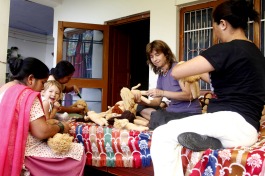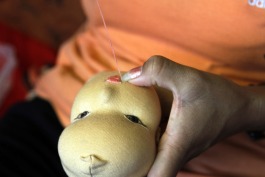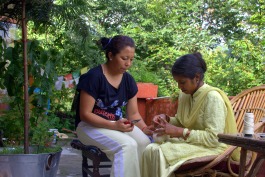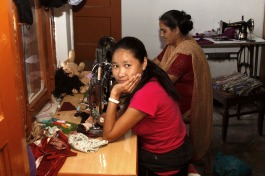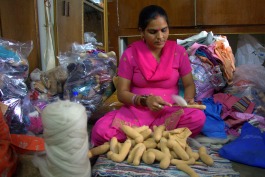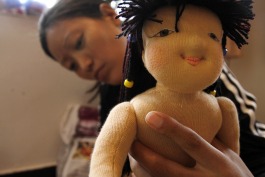Our workshop has been built around the needs of women within our community – a blend of Tibetan refugees and local Indian villagers.
Many of the women approaching us are in financial need and very eager to work, but lack any formal education and training or have long been unemployed. Some of the Tibetan women – especially the newly-arrived refugees – hardly speak Hindi or English, and therefore have few chances of employment. Also, many Indian women have demanding domestic commitments and find it difficult to combine these with standard work schedules.
Our project tries to address these varying needs by providing flexible working hours, a supportive environment, and training individuals in accordance to their existing skills and potential.
A woman who is experienced in basic needlework, has a ‘good eye’ and keen interest in handicrafts – which many have as part of their traditional upbringing – might learn the whole doll-making process as quickly as three months.
As every trainee starts working alongside an experienced Doll Maker, everyone learns step-by-step according to their own skills and timeframe. The individual creation of a beautiful doll is a rewarding activity, which gives confidence and a sense of achievement to women often lacking self-esteem or even basic communication skills in a foreign environment.
As the project retains an informal atmosphere, and the making of the dolls regularly demands team-work, it is easy to overcome initial inhibitions and language barriers.
Dolls4Tibet distinguishes itself by being particularly attractive to women and offering Tibetan refugees an emotional connection to their homeland as they create culturally relevant handicrafts.
In addition, by using pure Himalayan sheep wool for many of its products, Dolls4Tibet is supporting the local pastoral industry and provides a healthy work environment for its team.
